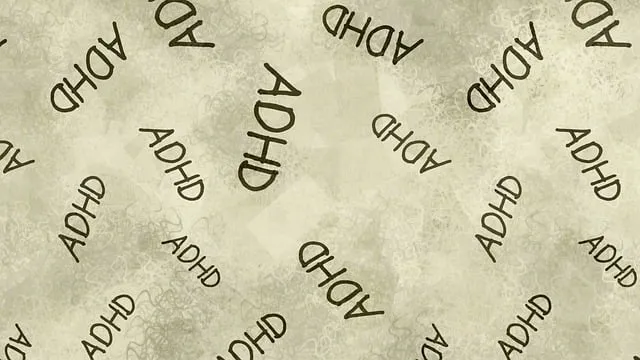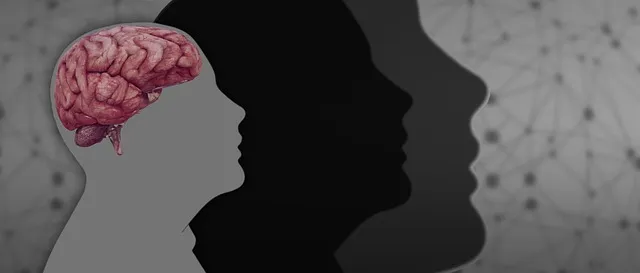Kaiser Permanente Mental Health Wheat Ridge offers comprehensive support for managing mental wellness in a fast-paced world through holistic approaches, including CBT for mood regulation, lifestyle adjustments, and mindfulness practices. They emphasize culturally sensitive care, providing accessible resources like podcasts and self-care tools to empower individuals in coping with stress and achieving emotional balance.
Discover effective mood regulation strategies, guided by insights from Kaiser Permanente Mental Health Wheat Ridge. This comprehensive article explores various techniques to enhance emotional well-being. From cognitive behavioral therapies that empower you to manage moods, to lifestyle adjustments that cultivate resilience and mindfulness practices for stress reduction—all are backed by expert knowledge from Kaiser Permanente’s dedicated mental health professionals.
- Understanding Mood Regulation: The Role of Kaiser Permanente Mental Health Wheat Ridge
- Cognitive Behavioral Techniques for Effective Mood Management
- Lifestyle Adjustments and Their Impact on Emotional Well-being
- Mindfulness Practices: Cultivating Calm in a Stressful World
Understanding Mood Regulation: The Role of Kaiser Permanente Mental Health Wheat Ridge

Understanding Mood Regulation: The Role of Kaiser Permanente Mental Health Wheat Ridge
In today’s fast-paced world, maintaining mental wellness is more important than ever. Kaiser Permanente mental health Wheat Ridge offers valuable insights and strategies for effective mood regulation. Through their comprehensive programs and services, they empower individuals to take control of their emotional well-being. The organization emphasizes the importance of a holistic approach, combining therapeutic interventions with practical tools such as Mind Over Matter Principles and Communication Strategies.
Their Mental Wellness Podcast Series Production provides accessible resources that delve into various aspects of mental health, including stress management, mindfulness techniques, and building resilient coping mechanisms. By integrating these strategies into daily routines, individuals can enhance their ability to navigate life’s challenges and cultivate a more balanced emotional state. Kaiser Permanente Wheat Ridge’s dedicated team ensures that these resources are tailored to meet the unique needs of each individual, fostering an environment where mental health support is both accessible and effective.
Cognitive Behavioral Techniques for Effective Mood Management

Cognitive Behavioral Techniques (CBT) offer powerful tools for effective mood management, as recognized by Kaiser Permanente mental health professionals in Wheat Ridge. CBT focuses on identifying and challenging negative thought patterns that contribute to low moods or emotional distress. By replacing irrational thoughts with more realistic and positive ones, individuals can significantly improve their overall well-being. This approach encourages self-reflection and problem-solving skills, enabling people to develop a robust self-care routine for better mental health.
Incorporating CBT strategies into daily life involves tracking thoughts, emotions, and behaviors to pinpoint triggers and patterns. Mental healthcare providers often guide individuals through risk assessments to understand potential risks or vulnerabilities, fostering cultural sensitivity in the process. This holistic approach ensures that each patient receives personalized care tailored to their unique needs, enhancing the effectiveness of mood regulation strategies.
Lifestyle Adjustments and Their Impact on Emotional Well-being

Making lifestyle adjustments can significantly impact emotional well-being, as recognized by Kaiser Permanente mental health specialists in Wheat Ridge. Incorporating regular physical activity, a balanced diet, and adequate sleep into daily routines has been shown to reduce symptoms of anxiety and depression. These simple yet powerful changes can enhance overall mental resilience, allowing individuals to better navigate life’s challenges.
Additionally, cultural sensitivity in mental healthcare practice plays a pivotal role in these adjustments. Understanding and respecting diverse cultural beliefs and practices enables healthcare providers to offer tailored support. Crisis intervention guidance, including burnout prevention strategies for healthcare providers, further strengthens the ability to assist those dealing with emotional distress. By combining lifestyle modifications with culturally responsive care, individuals can foster improved emotional well-being and build a more sustainable foundation for their mental health.
Mindfulness Practices: Cultivating Calm in a Stressful World

In today’s fast-paced and often stressful world, mindfulness practices have emerged as a powerful tool for managing mood and enhancing mental well-being, offered by organizations like Kaiser Permanente mental health Wheat Ridge. These practices encourage individuals to cultivate a sense of calm and presence in the moment, fostering resilience against life’s challenges. By focusing on the breath, observing thoughts without judgment, and engaging senses, mindfulness helps reduce anxiety, depression, and stress levels, promoting better emotional regulation.
Cultural sensitivity in mental healthcare practice plays a crucial role in the effectiveness of these strategies. Self-awareness exercises that consider individual cultural backgrounds can enhance the therapeutic process, ensuring practices are inclusive and meaningful. Mental health awareness campaigns that incorporate mindfulness have been shown to positively impact diverse communities, underscoring the importance of tailored approaches that resonate with different experiences and perspectives.
Mood regulation is a multifaceted process, and Kaiser Permanente Mental Health Wheat Ridge plays a vital role in empowering individuals to manage their emotional well-being. By combining evidence-based techniques such as cognitive behavioral therapy, lifestyle adjustments, and mindfulness practices, people can effectively navigate and improve their mental health. These strategies offer a holistic approach to coping with life’s challenges, fostering resilience, and enhancing overall happiness.






